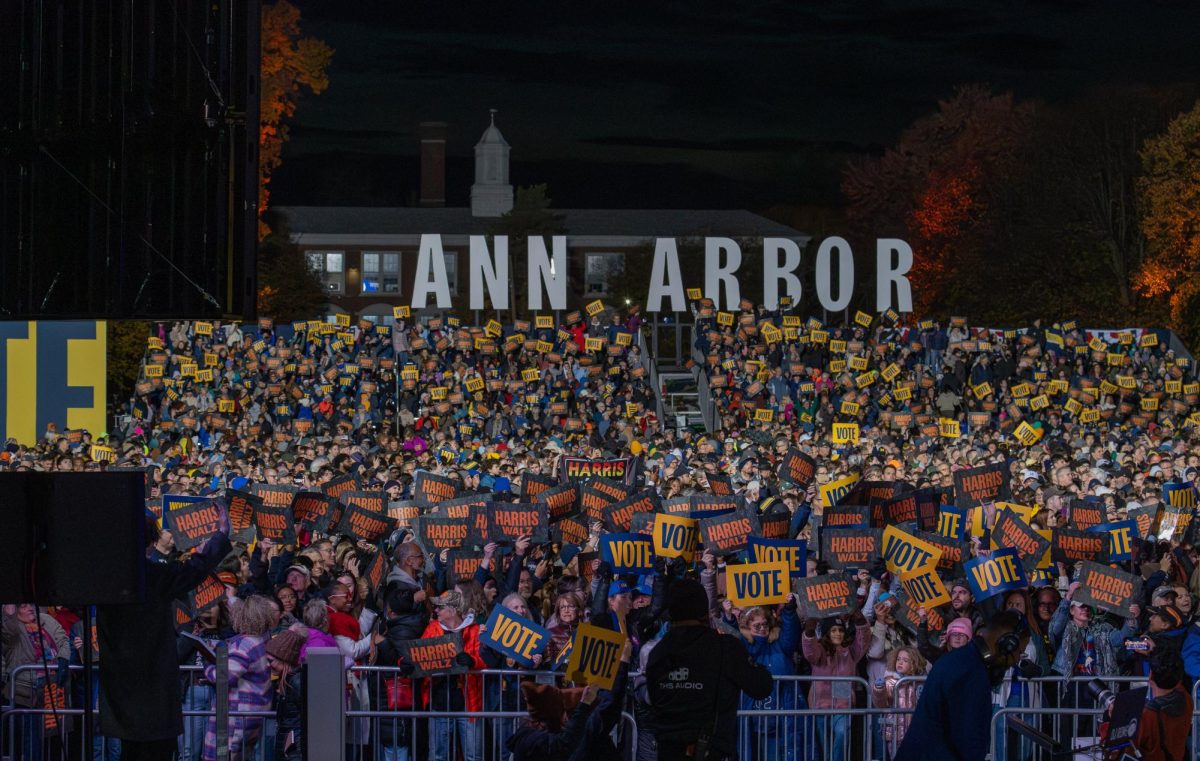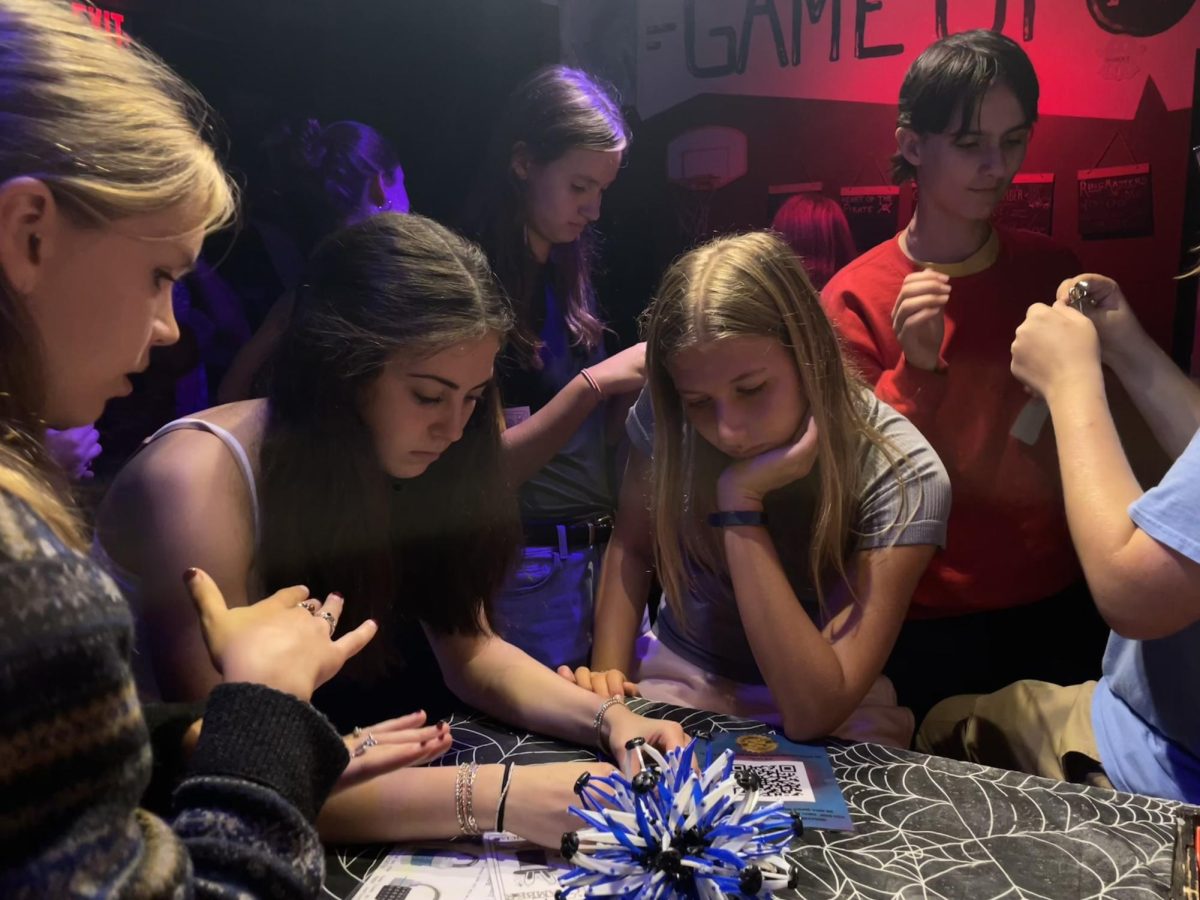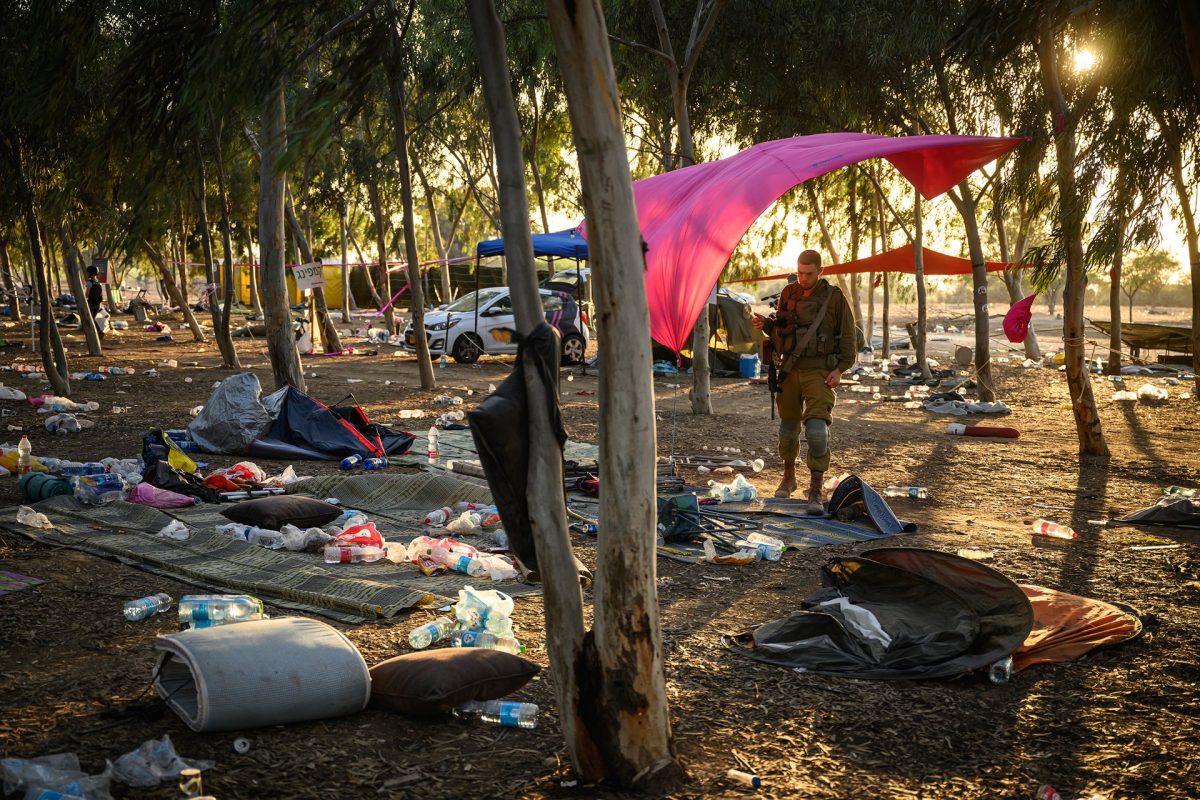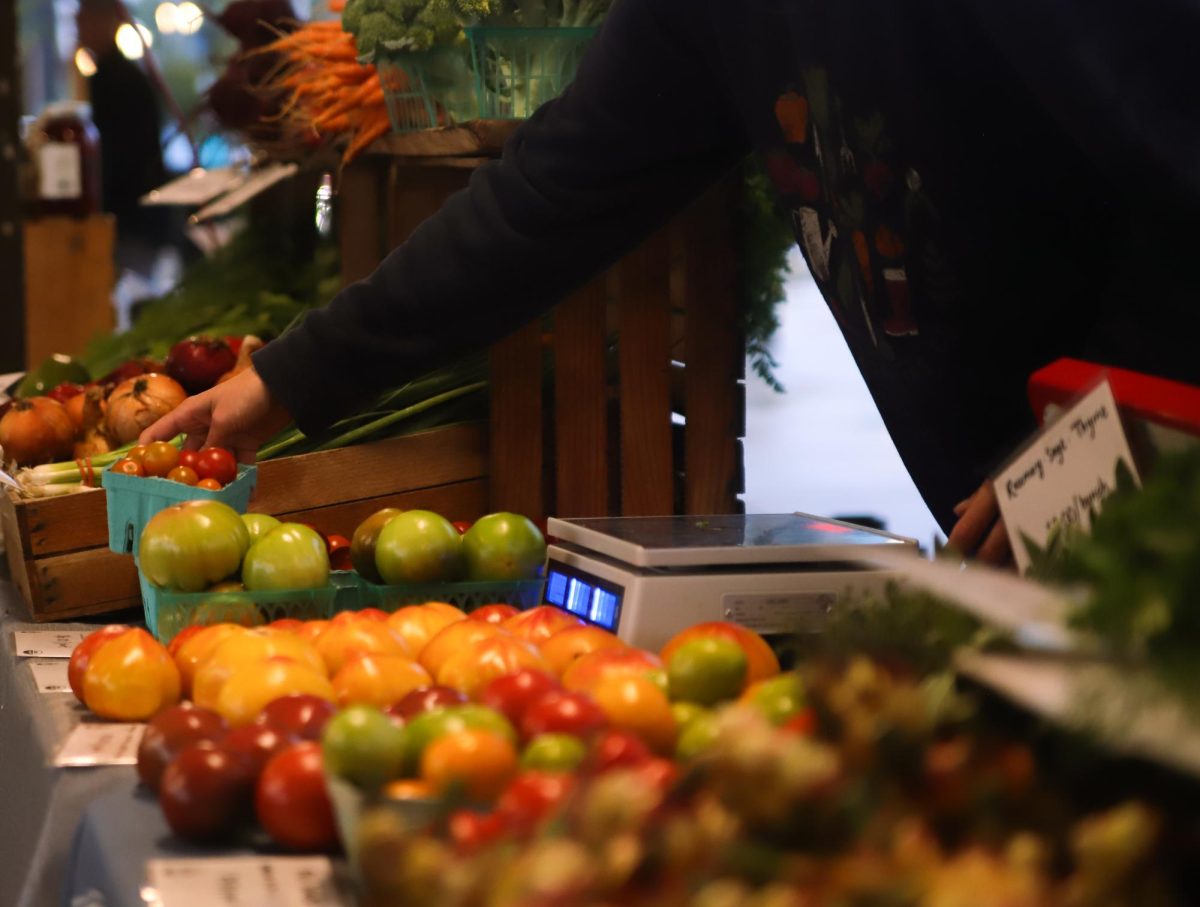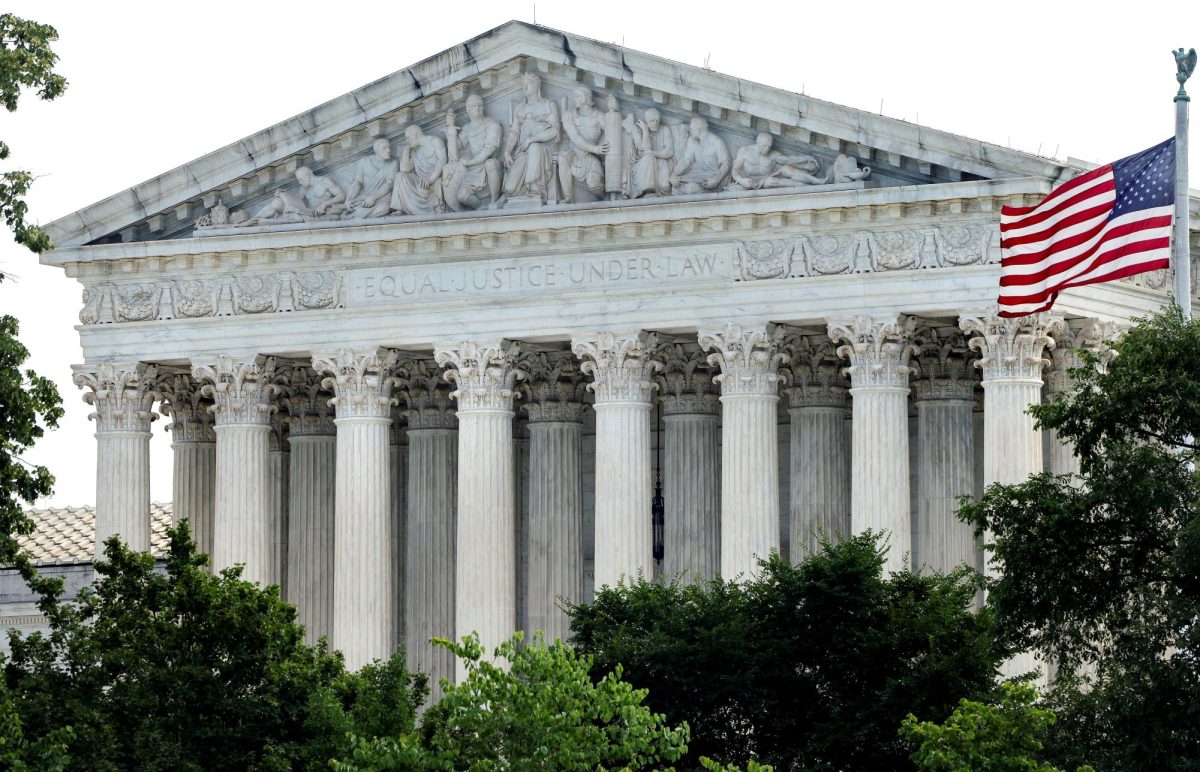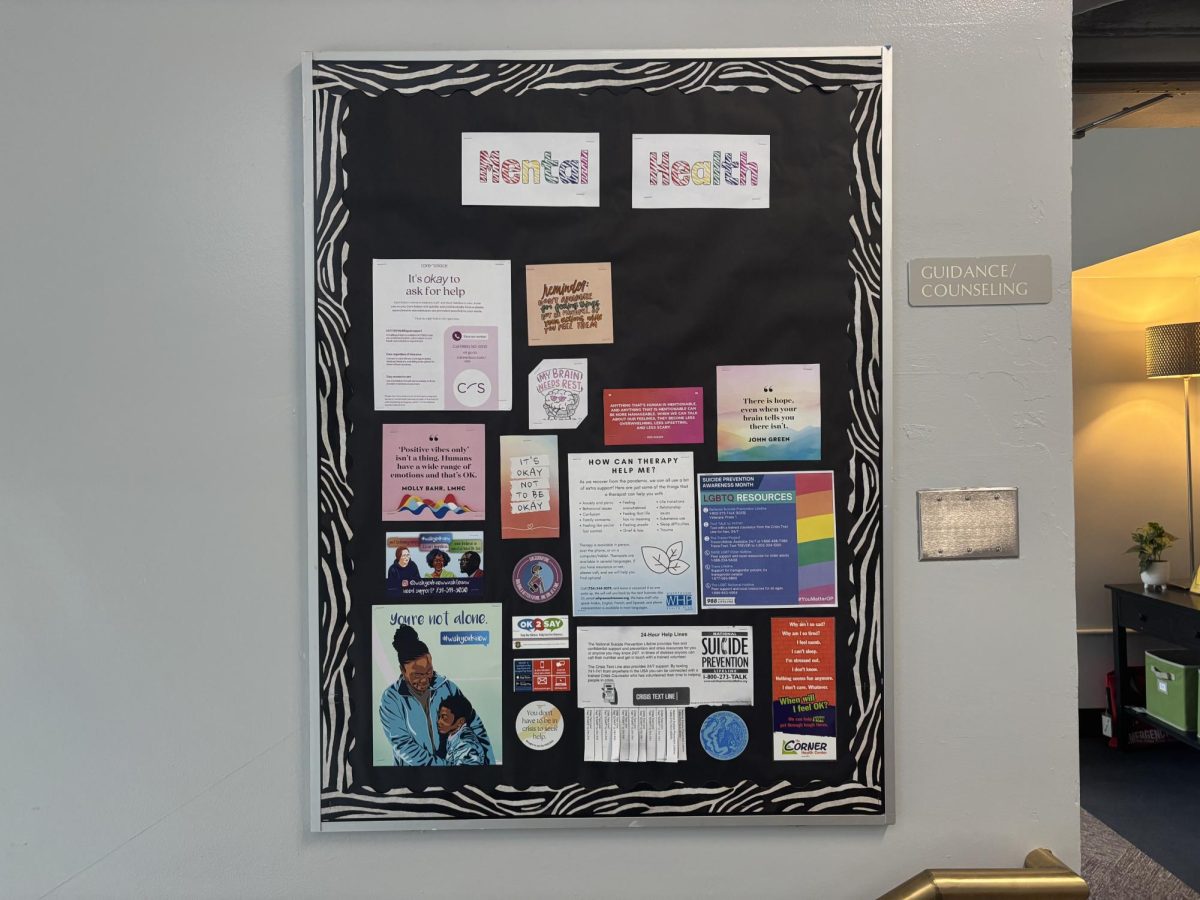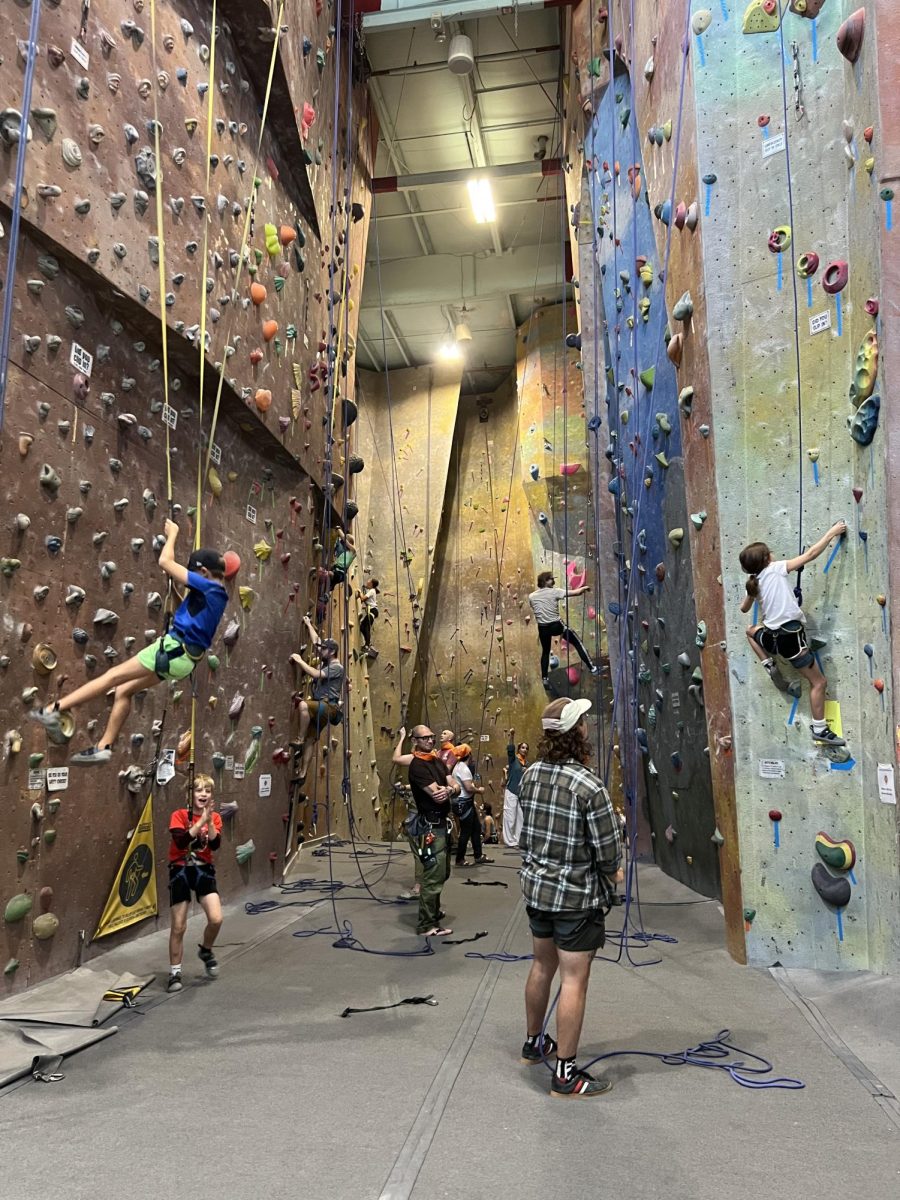It was early into the evening of Nov. 5 when junior Ellena Biermann, sitting with her sisters and mother, started to lose hope in Kamala Harris.
Just a week before, Biermann stood amongst her community as she waved yellow and blue “VOTE” signs in the air to Maggie Rogers singing “Light On.”
“You can take action against the darkness,” Rogers said. “You can choose the light.”
The “When We Vote” event in Ann Arbor on Oct. 28, featuring Vice President Harris, Minnesota Governor Tim Walz and musician Maggie Rogers, inspired Biermann and many others, feeding the anticipating energy that the entire country buzzed with, in the days before the election. Harris spoke to over 20,000 people crowded in the marked-off area of Burns Park, near the University of Michigan Campus.
“I think she gave everyone a sense of hope and positivity,” Biermann said.
Harris emphasized her support of women’s reproductive freedom and access to fertility treatments.
“We know it is time to turn the page,” Harris said. “Ours is a fight for the future. A fight for freedom, like the freedom of a woman to make decisions about her own body.”
She spoke on her economic policies various political issues and the importance of youth in making change in today’s world.
“I want to speak specifically to all the young voters, all the students here,” Harris said. “I love your generation. One of the things I love about your generation is that you are impatient for change. I see you, and I see your power.”
As a young person, Biermann believes that it is important to be involved and educated in politics. Her mother has exposed her daughters to politics and local candidates since they were young girls.
Harris was the last speaker of many that night, including Congresswoman Debbie Dingell and Lieutenant Giver Galvin Gilchrist. She closed the evening out as it started, by encouraging people to vote, the result of which she would see on the night of the election.
When that night came, Trump took an early lead. As expected, the first states called were mostly in the South.
As Sun Belt swing states Georgia and North Carolina turned redder and redder, it became clear that unless Harris could keep the blue wall up, Trump would take the presidency. The “blue wall” refers to typically democratic voting states and includes the swing states of Wisconsin, Michigan and Pennsylvania. The Sun Belt consists of the southern states of the U.S., many of which lean right. Nevada and Arizona fall in this area, with more swing states that stayed in tight margins until the end.
Biermann watched anxiously with her family as ballots were counted and states were called.
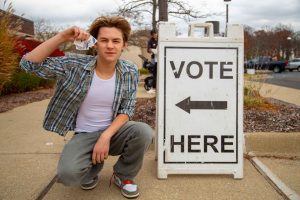
“I think I sort of knew it was going to end up not how I wanted it after watching part of it, and I’d sort of prepared myself for that,” Biermann said. “But obviously, it’s pretty disappointing to watch that happen.”
Biermann went to bed before the official call, but she knew what the result would be. She saw the fear in her sisters, in her mother and felt it in herself.
At 5:34 a.m., the Associated Press (AP) called Wisconsin for Trump, giving him the 10 electoral college votes he needed to surpass 270 and claim the presidency. Just after, the AP called the 2024 presidential election.
As the sun grazed the horizon on the morning of Tuesday, Nov. 6, Biermann awoke to find the news of a president-elect on her phone. Michiganders had made their voices heard and they had chosen Trump to be the president-elect. Biermann was scared: She felt like her country didn’t believe in her reproductive rights.
“I think I’m pretty safe in comparison to a lot of women, especially ones in the Deep South,” Biermann said. “But I don’t necessarily feel safe even in Michigan, in a liberal city.”
Biermann sees this feeling of not being safe among her loved ones as well as herself.
“My sisters are both pretty scared and rightfully so,” Biermann said. “That gives me a bit of a reality check, that makes me more scared. I don’t think they’re shaken easily, but I think especially at this level, if you’re getting your rights put at stake, then yeah, that’s definitely going to affect you.”
Though Biermann’s immediate family is aligned politically, she is aware that their extended family has different perspectives.
“My mom has six siblings, and the majority of them are men, so I think it’s just sad for her to see that they would vote for someone that would take people’s rights away,” Biermann said.
At a time when Biermann is grappling with the implications of the 2024 election for her future, she is also navigating the familial dynamics that come with an emotionally powerful disagreement. Biermann is grieving the hope she had for Harris but trying to rekindle the inspiration she felt during the Harris/Walz rally in Burns Park.
“We are here together because we love our country,” Harris said. “When you love something, you have to fight for it and ours is not a fight against something, but a fight for it.”
Biermann is moving forward with hope from Harris. She watched Harris’ speech at Howard University after the election and was reminded of the hope the rally instilled in her. She feels that the hope the rally inspired is still present, despite Harris’ loss.
“Her speech after the election was pretty powerful,” Biermann said. “We’re all going to be okay. And it’s going to be hard, but it’s going to be okay.”
For Biermann, hope and joy are what she can take into the next four years, even if they aren’t under the candidate she wanted to see win. She loves her family and her community and will continue to fight for their rights.
“I think a lot of people are scared, but I think being scared, we just have to keep going, because we need to get through this,” Biermann said. “We need to move on. We can’t just give up at this point.”



